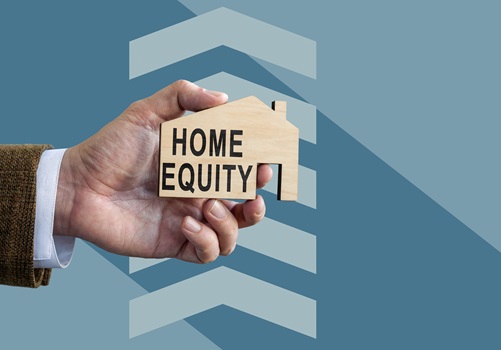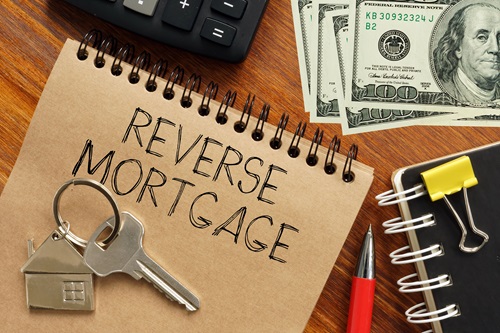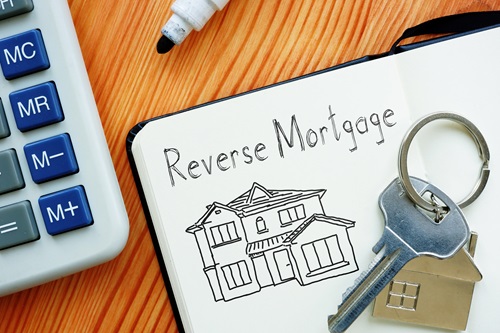
When thinking about retirement, many people focus on their savings and investments. But, often overlook one of their most significant assets—their home. Interestingly, the equity in your home can be a powerful tool to support your financial needs during retirement. One option to consider is a reverse mortgage, also known as a Home Equity Conversion Mortgage (HECM). However, while some see this as a valuable financial solution, others may hesitate due to misconceptions or concerns.
Understanding both the benefits and drawbacks of a reverse mortgage is essential for making an informed decision. Therefore, let’s explore the various aspects of reverse mortgages. We’ll help you determine if it could be the right fit for your retirement plan.
Exploring the Benefits of a Reverse Mortgage
Stay in Your Home Comfortably
To start, one of the most attractive features of a reverse mortgage is that it allows you to continue living in your home. Despite some common misconceptions, a reverse mortgage lets you retain full ownership and title. This applies as long as you meet your loan obligations. These include staying current with property taxes, insurance, and necessary maintenance. Rather than selling your home to access cash, a reverse mortgage offers a way to tap into your home’s equity. Not only that, you can do so while staying in the place you love.
Moreover, many retirees use funds from a reverse mortgage to make home improvements or modifications. For example, you might upgrade your bathroom to make it more accessible or install a new roof to ensure your home remains safe and comfortable as you age. By doing so, you can maintain your independence and enjoy your retirement years in the familiar surroundings of your own home.
Boost Your Retirement Income
Additionally, retirement often brings about changes in income, which can make managing expenses more challenging. A reverse mortgage in Charleston SC can provide an additional source of funds, helping to cover unexpected costs or simply giving you more financial flexibility. Unlike traditional loans, a reverse mortgage offers various ways to access your home equity, such as a lump sum, monthly payments, or a line of credit that you can draw from as needed.
Furthermore, this flexibility allows you to plan for the future and handle any financial surprises that may arise. Unlike a traditional Home Equity Line of Credit (HELOC), the funds from a reverse mortgage cannot be frozen or canceled by the lender, giving you greater peace of mind.
Enjoy Tax Benefits
In addition to its flexibility, a reverse mortgage can offer tax-related advantages. For instance, the money you receive from a reverse mortgage is considered loan proceeds, not income, which means it’s not subject to income tax. This can be particularly beneficial if you want to minimize taxable withdrawals from other retirement accounts, such as 401(k)s or IRAs. By doing so, you can allow your retirement savings to grow while keeping your taxable income lower.
However, it’s important to consult with a financial advisor to ensure this strategy aligns with your overall financial goals, as tax regulations and personal circumstances can vary.
 reverse mortgages in Charleston SC
reverse mortgages in Charleston SCCustomize How You Receive Funds
Another significant benefit of a reverse mortgage financing is its flexibility in how you receive the funds. You have several options to choose from, which means you can tailor the loan to fit your specific needs. For example, if you have a large expense, such as debt consolidation or purchasing a new home, you might opt for a lump sum. Alternatively, if you prefer a steady stream of income, monthly payments might be the best choice. Moreover, a line of credit offers the freedom to withdraw funds as needed, which is ideal for unexpected expenses.
This level of customization allows you to make your home’s equity work in the way that best suits your life and financial goals.
No Required Monthly Payments
Perhaps the most appealing feature of a reverse mortgage in Charleston SC is that it eliminates the need for monthly mortgage payments. This can significantly improve your cash flow, especially if you currently have a mortgage balance. With a reverse mortgage, the existing balance is paid off first, freeing up even more funds for you to use as you see fit.
Moreover, while no monthly payments are required, you still have the option to make payments if you choose. Doing so can reduce the overall interest and balance of the loan. However, repayment is not necessary until a maturity event occurs, such as selling the home or permanently vacating it.
Protection with a Non-Recourse Loan
A reverse mortgage is also a non-recourse loan, meaning that neither you nor your heirs will owe more than the home’s value at the time of repayment when the property is sold. This safeguard ensures that if the loan balance exceeds the home’s value, you won’t be responsible for covering the difference. Additionally, the lender cannot pursue any other assets to repay the loan, providing further security and peace of mind.
Considerations and Potential Drawbacks
Qualification Criteria
However, not everyone qualifies for a reverse mortgage. To be eligible, you must have sufficient equity in your home, typically at least 50% of its value. Additionally, there are age requirements—usually, you must be 62 or older for a HECM. Your home must also be your primary residence and meet certain property qualifications. For example, vacation homes and income-producing properties do not qualify.
Moreover, you must stay current with property taxes, insurance, and maintenance costs. If you fail to meet these obligations, the loan could become due. Therefore, it’s essential to ensure that you can handle these responsibilities before proceeding with a reverse mortgage.
Associated Costs
Like any financial product, reverse mortgages come with fees and costs. These may include loan origination fees, appraisal fees, closing costs, and mortgage insurance premiums. While some costs can be covered by the loan proceeds, it’s important to understand all associated fees beforehand.
Mortgage insurance premiums, for instance, can be significant, particularly for high-value properties. However, if you have a high-value home, you might consider a proprietary or jumbo reverse mortgage, which may offer different cost structures.
Ongoing Responsibilities
Even with a reverse mortgage, you’ll still be responsible for ongoing home-related expenses such as maintenance, property taxes, and homeowners insurance. Keeping up with these payments is vital, as failure to do so can trigger the loan to become due. Some borrowers choose to set aside funds in a Life Expectancy Set Aside (LESA), which works similarly to an escrow account, to ensure these expenses are covered automatically.
Ultimately, a reverse mortgage can be a valuable tool for unlocking the equity in your home and enhancing your retirement. However, it’s essential to carefully weigh the benefits and potential drawbacks to determine if it’s the right fit for your financial situation.
If you’re considering a reverse mortgage or simply want to learn more about how it could benefit you, reach out to South Carolina Reverse Mortgage Services and we’ll guide you through the process.
Your home is one of your most valuable assets—make sure you’re making the most of it. Call South Carolina Reverse Mortgage Services now.
South Carolina Reverse Mortgage Services
334 East Bay St #256
Charleston, SC 29401
843-491-1436
https://www.reverse-info.com/


 Reverse Mortgage in Charleston SC
Reverse Mortgage in Charleston SC
 reverse mortgage in Charleston SC
reverse mortgage in Charleston SC
 reverse mortgage in Myrtle Beach SC
reverse mortgage in Myrtle Beach SC